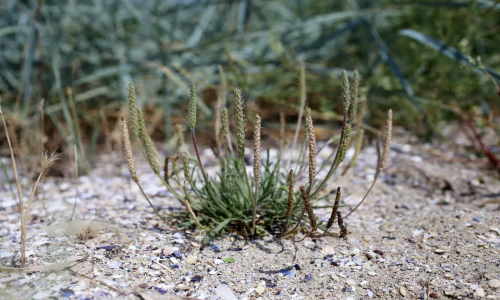
This article was originally published by Craig Taylor on www.morningchores.com
Struggle with greens that bolt in the heat or can’t handle a little frost?
Want something different from the usual salad greens? Try growing erba stella. It’s fantastic because it’s cold-tolerant, but doesn’t bolt quickly in warm weather.
This incredible salad green is known for its crunchy texture and salty, nutty flavor, which is why it’s sought after in Italy. It’s a cold-weather loving salad green that grows right through winter in temperate areas, but heat doesn’t faze it.
Sound good? Here’s what you need to know about this lesser-known, but oh-so-delicious green.
What is Erba Stella
I know this wonderful salad green as erba stella (Plantago coronopus). You may know it as minutia or bucks horn plantain. Whatever you call it, you should be growing erba stella in your garden.
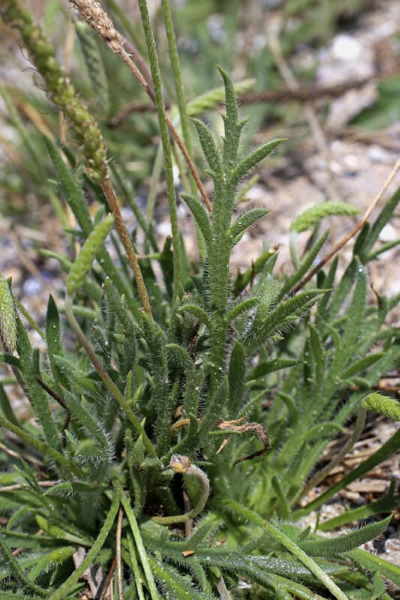
Although it isn’t well known these days, it has been around in the U.S. since at least the 1700s.
The name erba stella means “star grass” in Italian, and the plant looks like skinny arugula and grows in a similar pattern to a clump of grass. It grows in zones 5 to 9. Given that it’s cold and frost tolerant, try growing it in a greenhouse, tunnels, or cold frames outside of these areas.
When shopping for them, you may see the seeds labeled as:
- Erba stella
- Herba stella
- Minutina
- Star herb
- Bucks horn plantain
The seeds used to be impossible to find in the U.S. and was only slightly more available in England and Europe (outside of Italy.) These days, it’s available at most specialty seed retailers.
How to Grow Erba Stella
Erba stella grows naturally in Eurasia and North Africa, so with such a broad range of environments, it’s no wonder the plant is adaptable. Some gardeners grow it as an annual, especially in some zones in North America where temperatures get freezing, but technically it’s a perennial.
Plant in full sun, but partial shade is acceptable. For summer plantings, provide partial shade against the hottest part of the day.
Erba stella grows well in most soil types. It grows naturally on Europe’s rocky shorelines, so it can even grow in saline soils.
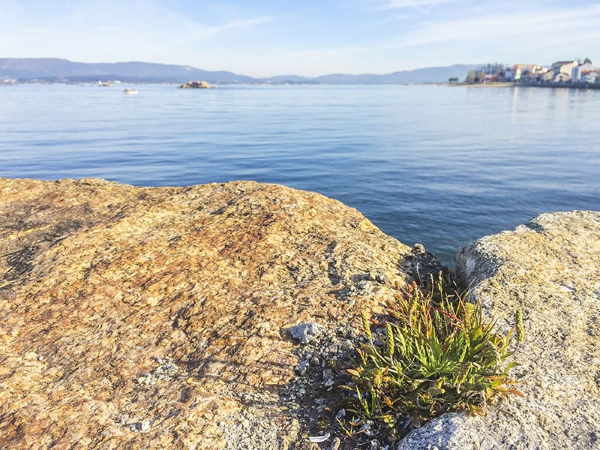
Minutina will grow for you just about where ever you plant it, truth be told. It’s probably the hardiest green I’ve grown in over a decade.
When to Plant
In warm areas, plant in spring as soon as the ground is workable. Erba stella is cold tolerant and gets even sweeter tasting after a frost.
It overwinters comfortably with little effort from you, especially in mild winters. Cover or protect the plants from a heavy freeze.
In cool areas, wait for mid to late spring to sow outside.
You can sow seeds in small pots in a cold frame or greenhouse in the winter. Transplant when the seedlings are big enough to handle and the ground is workable.
Erba stella prefers moist, cool days like spring, fall or early winter.
Container Planting
Erba stella grows well in pots. Use a medium-sized container filled with a potting medium. Sprinkle the seeds sparsely. They are tiny and you’ll need to thin them out a lot if you sprinkle too liberally. You want one plant per 6 inch container.
Cover lightly and spray the soil to keep it moist. Water well as the seedlings grow.
Planting Seed
Erba stella seeds are tiny, so avoid sprinkling too thickly when sowing. You will end up thinning out more than you keep and wasting lots of seeds.
Plant 1/4 inch deep about two inches apart. Cover very lightly and water. Thin seedlings out to about 6 inches apart.
Germination temperature is usually between 45°F and 75°F. You could see the seeds appear in as little as 2 days to 15 days, depending on the temperature when you plant.
Make successive plantings to have a continuous supply.
Caring for Erba Stella
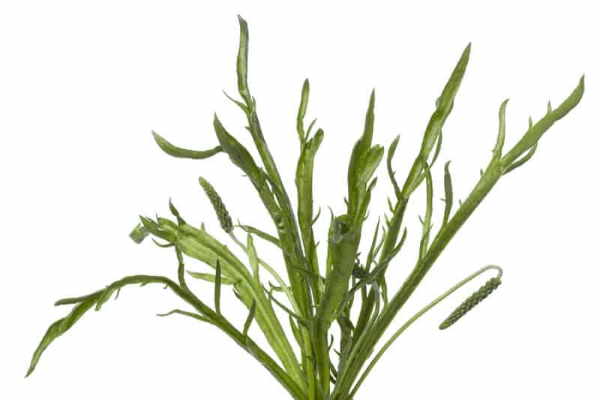
Fertilizer
Because erba stella grows in most soil types and doesn’t require rich soil, you can get away with planting it in most soils – except clay. It prefers loose, well-draining soil that’s high in organic matter.
I prepare the soil with a balanced fertilizer and plenty of well-rotted compost because I don’t want any soil-borne issues. Test your and keep it healthy and well-fed.
Water
Erba stella needs plenty of water to keep the leaves succulent. Make sure you don’t let the soil dry out. Don’t overwater as erba stella won’t thrive with wet feet.
The best technique for erba stella is to monitor the plant. If it looks slightly wilted, water it and if it looks healthy, test the soil for dryness and only water where necessary.
Pruning and Mulching
Remove any dead or wilted leaves so they don’t infect any other parts of the plant.
Mulch your erba stella with straw mulch in fall. This should keep them going right up to Christmas.
Companion Planting for Erba Stella
Plant with:
- Arugula
- Miners Lettuce
- Corn Salad
Common Problems and Solutions for Growing Erba Stella
Erba stella is a hardy survivor and often gets through a season with no problems at all. Like all plants though, sometimes pests and diseases get into the garden. I find that when erba stella does have issues, it’s because another plant close by started and spread it.
Leaf Spot
I planted erba stella near some beets that developed leaf spot. Eventually, the disease made its way to the closest minutina plants.
I removed the leaves as soon as I noticed the spotting and yellowing. While it generally won’t cause too much damage to your plants, it’s unsightly and can reduce photosynthesis.
Avoid watering plants overhead, water at the base instead. Avoid overfertilizing and crowding. You can also spray plants with a mix of 1 teaspoon of baking soda to one gallon of water.
Aphids
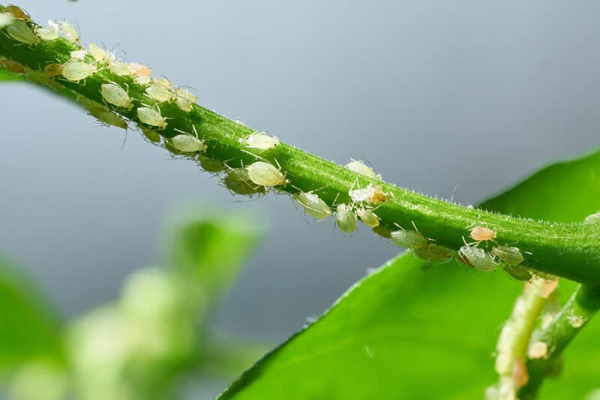
Aphids cause more problems than just sucking the juice from the insides of the plant. They excrete honeydew, which is a sweet substance favored by ants, wasps, and other undesirable insects.
There are lots of tactics for dealing with aphids, so don’t worry. Worst case, use neem oil or pyrethrum if necessary.
MORE ARTICLES :
How To Make A Pain-Relieving Willow Bark Tincture
5 Poisonous Plants That Can Be Used As Medicine When SHTF
The Beginner’s Guide To Companion Planting
24 Lost Gardening Tips from 100 Years Ago
The States with the Most Medicinal Plants. Do You Live in One of Them?
10 Most Powerful Medicinal Plants Used by Cherokees


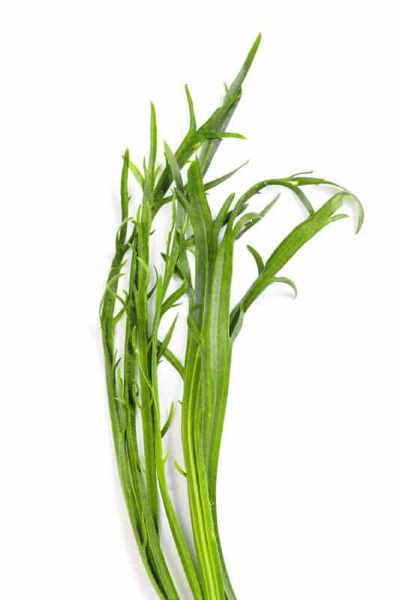


One Reply to “Erba Stella: Everything to Know About Growing This Unique Salad Green”